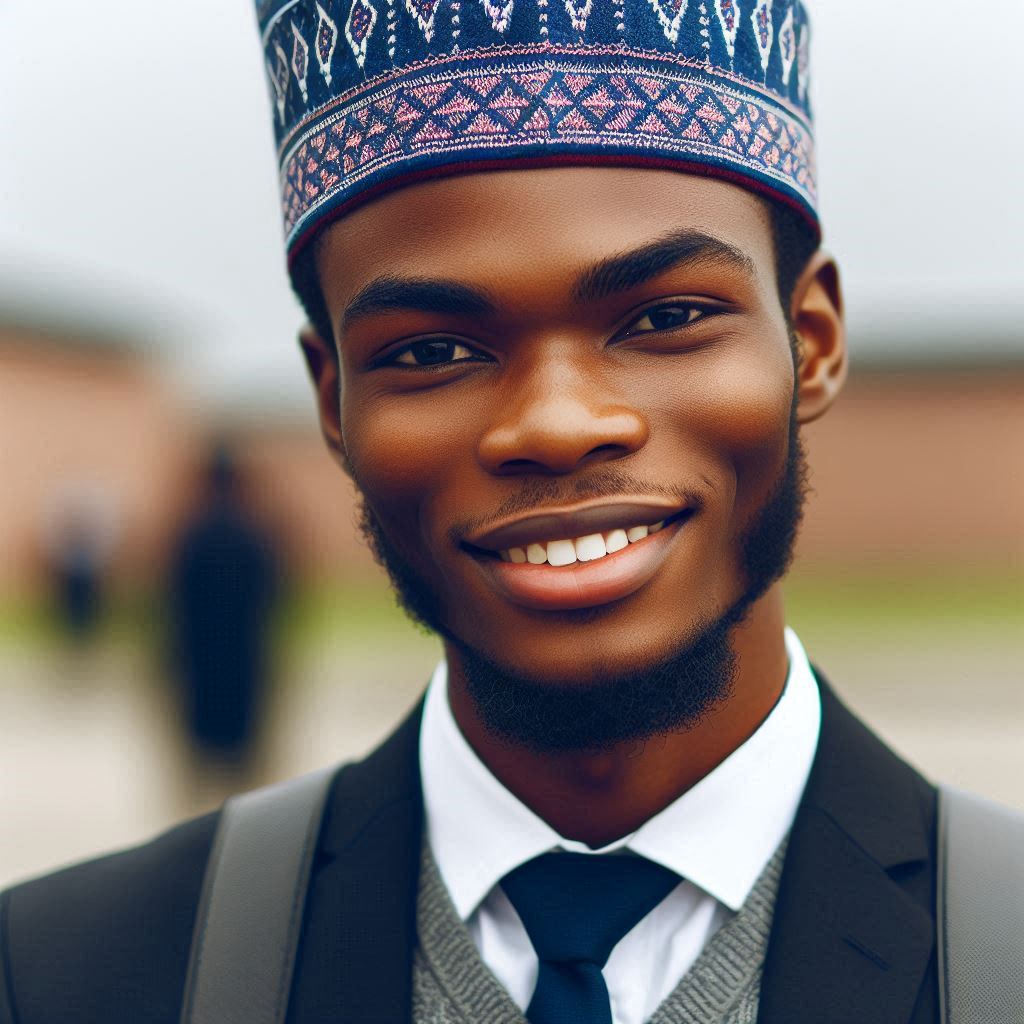Introduction
Extracurricular activities in Nigerian schools refer to activities that students participate in outside of their regular academic curriculum.
These activities are important for holistic development and play a crucial role in shaping a student’s character.
Extracurricular activities in Nigerian schools encompass a wide range of options such as sports, drama, music, debate, and community service.
These activities allow students to explore their interests, develop new skills, and interact with their peers in a different setting.
Engaging in extracurricular activities fosters a well-rounded education by providing students with opportunities to learn beyond the classroom.
These activities encourage teamwork, leadership, time management, and discipline.
They also help students build self-confidence, improve social skills, and enhance their overall academic performance.
Sports Activities
Description of popular sports played in Nigerian schools
Football is the most popular sport played in Nigerian schools, with students forming teams for inter-school competitions.
Other popular sports include basketball, athletics, volleyball, and table tennis, which are also widely enjoyed by students.
Benefits of participating in sports
Participating in sports helps students stay physically fit and healthy, promoting overall well-being and reducing the risks of obesity.
Sports also teach important values such as teamwork, discipline, perseverance, and leadership skills, which are crucial for personal development.
Examples of successful Nigerian athletes who started from school sports
Several Nigerian athletes have risen to fame after starting their careers in school sports programs.
Some notable examples include:
- Blessing Okagbare – a track and field athlete who began competing in school athletics competitions.
- Kelechi Iheanacho – a professional footballer who honed his skills playing for his school team before joining a professional club.
- D’Tigress (Nigerian Women’s Basketball Team) – Many of the players on the national team started their careers playing basketball in school.
In fact, sports activities in Nigerian schools play a significant role in shaping young athletes and nurturing their talents for future success.
Read: Role of Technology in Nigerian Primary Schools
Cultural and Arts Activities
When it comes to extracurricular activities in Nigerian schools, cultural and arts activities play a significant role.
These activities help students to connect with their roots and heritage while also developing important skills.
Overview of Cultural and Arts Activities in Nigerian Schools
Nigerian schools offer a wide range of cultural and arts activities to students.
These activities include traditional dances, drama performances, and music presentations.
Students have the opportunity to learn and participate in these activities as part of their school curriculum or through extracurricular clubs and groups.
Traditional Dances, Drama, and Music Performances
Traditional dances are an integral part of Nigerian culture, and many schools incorporate dance performances into their extracurricular activities.
Students learn traditional dance moves and routines, showcasing their skills at school events and competitions.
Drama is also a popular extracurricular activity, with students participating in plays, skits, and theatrical performances.
This helps to develop their creativity, confidence, and public speaking skills. Music performances are another common extracurricular activity in Nigerian schools.
Students learn to play musical instruments, sing, and compose music, showcasing their talents at school concerts and events.
Importance of Preserving Nigerian Culture Through Extracurricular Activities
Participating in cultural and arts activities helps students to connect with and preserve Nigerian heritage and traditions.
It fosters a sense of pride and appreciation for their culture, language, and history.
Through these activities, students learn about the rich diversity of Nigerian culture and develop a deep understanding of their roots.
It also helps to promote unity and harmony among students from different backgrounds, promoting cultural exchange and understanding.
In short, cultural and arts activities in Nigerian schools are essential for preserving and promoting Nigerian culture and heritage.
These activities not only provide students with opportunities to develop their talents and skills but also play a crucial role in building a strong sense of identity and pride in their cultural heritage.
Schools should continue to prioritize and support these extracurricular activities to ensure that students have the opportunity to connect with their roots and celebrate the rich diversity of Nigerian culture.
Read: Profiles of Prominent Nigerian Biologists
Debate and Public Speaking
Role of debate and public speaking in Nigerian schools
Debate and public speaking play a significant role in Nigerian schools, serving as platforms for students to enhance their communication and critical thinking skills.
These extracurricular activities provide students with opportunities to express their opinions, develop confidence, and engage in constructive dialogue.
Through debate and public speaking, students learn to articulate their thoughts effectively and logically, which is essential for academic success and personal growth.
Benefits of improving communication and critical thinking skills
Participating in debates and public speaking contests enables students to research and analyze various topics, critically evaluate evidence, and present compelling arguments.
These activities foster intellectual curiosity and encourage students to broaden their perspectives by considering different viewpoints.
Moreover, debating and public speaking competitions help students build resilience and develop the ability to think on their feet.
By facing challenging situations and learning to respond to unexpected questions, students enhance their problem-solving skills and adaptability.
In Nigerian schools, students who excel in debate competitions often receive recognition and accolades for their achievements.
Transform Your Career with Expert Guidance
Get personalized mentorship consulting that’s tailored to your unique path. Our expert advice is actionable and exclusive.
Get StartedThese success stories inspire other students to strive for excellence and demonstrate the impact of effective communication and critical thinking skills.
Success stories of students who excelled in debate competitions
One notable success story is that of Adaobi Okonkwo, a high school student from Lagos, who won the national debate championship and earned a scholarship to study law at a prestigious university.
Adaobi’s victory not only showcased her intellectual prowess but also highlighted the importance of debate in shaping young minds.
Another example is Segun Adeleke, a student from Abuja, who represented Nigeria at the International Public Speaking Competition in London and impressed the judges with his eloquence and persuasive arguments.
Segun’s experience not only boosted his confidence but also opened doors to new opportunities for personal and professional growth.
Overall, debate and public speaking are essential extracurricular activities in Nigerian schools that contribute to the holistic development of students.
By honing their communication and critical thinking skills, students are better prepared to navigate the complexities of the modern world and become effective leaders in their communities.
Read: Workshops and Conferences for Biology Educators

Leadership and Volunteering
Extracurricular activities play a significant role in the overall development of students in Nigerian schools.
One popular extracurricular category is Leadership and Volunteering, offering diverse opportunities for students to enhance their skills and contribute positively to their communities.
Opportunities for students to develop leadership skills
Participation in leadership roles within school clubs, student council, or community service projects provides students with invaluable opportunities to develop and hone their leadership skills.
These roles empower students to take on responsibilities, make decisions, and collaborate with peers to achieve common goals.
Importance of volunteering in the community
Volunteering in the community is a cornerstone of Nigerian schools’ extracurricular programs.
It not only allows students to give back to society but also fosters a sense of empathy, social responsibility, and civic engagement.
Through volunteer work, students can make a meaningful impact on the lives of others while gaining valuable experiences and insights.
Impact of leadership and volunteering on personal growth
Engaging in leadership roles and volunteering activities can have a profound impact on students’ personal growth and development.
These experiences help students build confidence, develop communication and interpersonal skills, and cultivate a sense of self-awareness and empathy.
By taking on leadership responsibilities and giving back to their communities, students learn important life lessons, such as teamwork, resilience, and adaptability.
In essence, Leadership and Volunteering are popular extracurricular activities in Nigerian schools that offer students valuable opportunities for growth, skill development, and community engagement.
Encouraging students to participate in these activities can contribute to their overall well-being and prepare them for success in their academic and professional lives.
Read: Biology Education and Sustainable Development Goals
Science and Technology Clubs
Science and Technology clubs in Nigerian schools are platforms where students with an interest in STEM subjects come together to learn, innovate, and collaborate on various projects.
These clubs are usually led by teachers or student leaders who are passionate about science and technology.
Description of Science and Technology Clubs in Nigerian Schools
Science and Technology clubs provide a space for students to explore their curiosity in subjects like Physics, Chemistry, Biology, Computer Science, and Engineering.
The clubs organize hands-on activities, workshops, and seminars to enhance students’ understanding of these subjects beyond the classroom curriculum.
Importance of Promoting STEM Education
Promoting STEM education through extracurricular activities like Science and Technology clubs is crucial for preparing students for the future workforce.
STEM skills are in high demand worldwide, and by engaging in these clubs, students develop critical thinking, problem-solving, and teamwork skills that are essential in the 21st-century job market.
Examples of Student Inventions and Innovations from Extracurricular Activities
Many students in Nigerian schools have showcased their creativity and innovation through projects initiated in Science and Technology clubs.
For instance, students have built robots, developed mobile applications, created sustainable energy solutions, and designed prototypes for various inventions.
These projects not only demonstrate students’ technical skills but also their ability to think outside the box and address real-world problems.
Conclusion
Extracurricular activities in Nigerian schools are not merely hobbies or pastimes; they are integral components of a holistic education.
Throughout this post, we’ve explored the vibrant landscape of extracurricular involvement in Nigerian educational institutions, ranging from sports to arts and academic clubs.
The diversity of options available ensures that every student can find something that resonates with their interests and talents.
Extracurricular activities offer students opportunities beyond the confines of the classroom to develop crucial life skills such as leadership, teamwork, time management, and communication.
They provide a platform for students to explore their passions, discover hidden talents, and build confidence.
Additionally, participation in extracurriculars enhances academic performance by fostering a sense of belonging and motivation among students.
To the students of Nigerian schools, I encourage you to step out of your comfort zones and explore the plethora of extracurricular activities available to you.
Whether it’s joining a sports team, participating in a debate club, or engaging in community service, each activity offers unique opportunities for growth and self-discovery.
Embrace the chance to broaden your horizons, make new friends, and leave a lasting impact on your school community.
In the end, extracurricular activities are not just an addendum to education; they are an essential part of it.
They play a vital role in shaping well-rounded individuals equipped to navigate the complexities of the modern world.
So, dear students, dive in, explore, and let your extracurricular journey be a testament to your passion, dedication, and potential.




